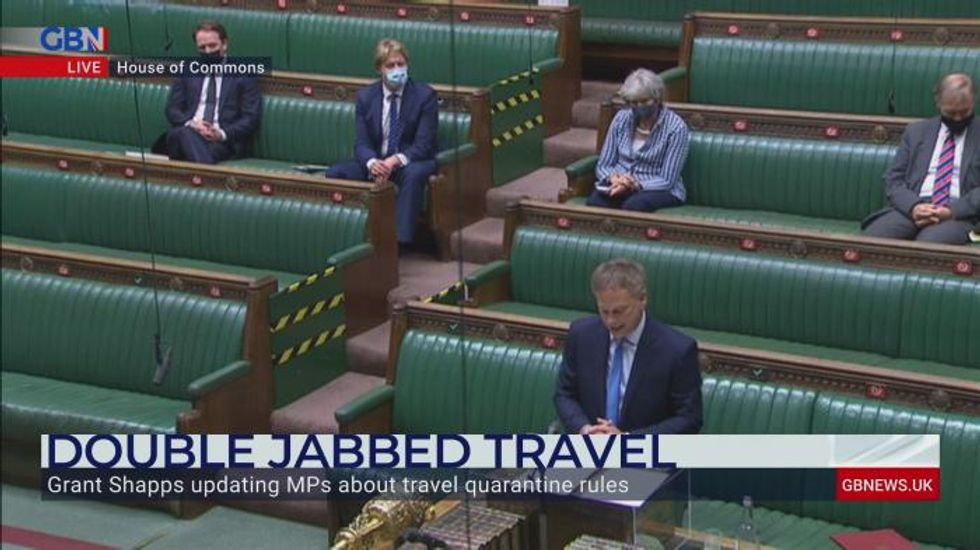Don't Miss
Most Read
Trending on GB News
Holidaymakers who have had both Covid-19jabs will be able to enjoy quarantine-free travel to amber list countries from July 19, the government has announced.
Transport Secretary Grant Shapps told the House of Commons that people arriving from England who are fully vaccinated will no longer be required to self-isolate for 10 days.
It means Brits will be able to travel to popular holiday destinations such as Spain, France, Italy and others without the need for a full isolation period at home - providing the tourism industry with a much needed boost.
Speaking in the House of Commons, Mr Shapps said: "I can confirm today that from July 19, UK residents who are fully vaccinated through the UK vaccine rollout will no longer have to self isolate.
General view of Playa de los Cristianos in Tenerife, Spain.
Lauren Hurley
"When they return to England, they're still be required to take three days a test three days before returning the pre departure test demonstrating the negative before they travel, and a PCR test on or before day two.
"But they will no longer be required to take a day eight test in essence, this means that for fully vaccinated travellers, the requirements for green and amber lists countries are the same."
He added: "To be clear, a full vaccination means 14 days have passed since your final dose of the vaccine."
Mr Shapps also pointed out that matters of health are a devolved issue, meaning the changes do not affect Scotland, Wales and Northern Ireland.
Travel firms had been pressing for quarantine restrictions to be eased to revitalise foreign travel when restrictions are eased on July 19 and lockdown controls are lifted.
However the move isn't without its detractors, as more than 120 scientists and medics called on the Government to halt its plans for lockdown lifting, describing them as a “dangerous and unethical experiment”.
In a letter to the Lancet, they warned millions more people will became infected if it goes ahead, leaving hundreds of thousands with long-term illness and disability through long Covid. Signatories include Dr Chaand Nagpaul, the chair of the council of the British Medical Association, and Sir David King, a former government chief scientific adviser.
Rules around quarantine for arrivals back into the UK have shifted thanks to vaccines.
Jacob King
“This strategy risks creating a generation left with chronic health problems and disability, the personal and economic impacts of which might be felt for decades to come,” the letter said. “Allowing transmission to continue over the summer will create a reservoir of infection, which will probably accelerate spread when schools and universities reopen in autumn.
“We believe the Government is embarking on a dangerous and unethical experiment, and we call on it to pause plans to abandon mitigations on July 19 2021.”
Wednesday saw a further 32,548 lab-confirmed Covid-19 cases in the UK, the highest daily reported total since January 23, and a further 33 deaths. The number of Covid-19 patients in hospital in England stood at 2,144 as of 8am on Wednesday, according to the latest figures from NHS England – up 43% from a week earlier and the highest number since April 10.
And a total of 416 hospital admissions of people with Covid-19 in England were reported for Monday, up 70% from a week earlier and the highest number since March 15.
In the Commons on Wednesday, Prime Minister Boris Johnson claimed the success of the vaccine rollout had “severed” the link between infections and serious disease and deaths. His comments were criticised by some scientists after the Government’s chief scientific adviser Sir Patrick Vallance had previously said the vaccines had weakened, but not broken the link.












